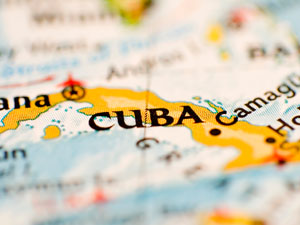
New Rules Open Opportunities for Exports, Financial Services, and Travel
On January 16, 2015, the U.S. Treasury Department issued new sanctions regulations easing the 54-year old Cuban embargo. Coming in the wake of the Obama administration’s efforts to restore diplomatic relations with Cuba, the new rules facilitate travel, expand certain exports, and authorize related financial transactions. The move also reduces some restrictions on multinational companies with U.S.-based affiliates, making it easier for these firms and their foreign affiliates to conduct business with certain Cuban nationals. These changes are not a panacea for companies looking to expand their business with Cuba or Cuban nationals, however. With most elements of the embargo still in force, corporations that are (or could be) subject to U.S. jurisdiction should review the rules carefully before pursing new business opportunities.
As discussed in Foley’s previous Legal News Alert, the new rules revise both the Cuban Assets Control Regulations (CACR) and the Export Administration Regulations (EAR). Many of these changes come in the form of general licenses that allow U.S. companies to engage in certain specified activities without obtaining prior government authorization. So long as companies adhere to relevant license requirements, there is no need for them to obtain export licenses from the Treasury Department’s Office of Foreign Assets Control (OFAC) or the Commerce Department’s Bureau of Industry and Security (BIS). These changes cover five key sectors:
- Banking and Financial Services. The revised CACR authorize U.S. banks to open correspondent accounts at Cuban financial institutions, process wire payments, and establish payment networks for U.S. credit and debit cards. These provisions cover transactions that are incidental to other authorized trade and travel activities. The amendments also permit U.S.-based banks to provide certain financial services to Cuban nationals living outside of Cuba, as well as to Cuban Government agencies engaged in official diplomatic activities inside the United States.
- Agriculture, Construction and Small Business. Amendments to the CACR and EAR also permit direct trade with Cuba in several specified areas. Notable examples include exporting tools and building materials for private residences, agricultural equipment for private farmers, and tools equipment, supplies, and instruments for private businesses. In addition, U.S. persons will be allowed to support certain micro-financing and business training programs in Cuba, as well as import certain goods produced by Cuban entrepreneurs. The proposed changes will also allow U.S. persons to travel to Cuba in connection with these authorized business activities. Finally, changes in the financial sector regulations will allow U.S. companies that already export agricultural and medical products to conduct Cuba transactions directly through U.S. financial institutions rather than third-party foreign banks.
- Telecommunications and Consumer Electronics. Changes to the CACR also expand the export of commercial telecommunications products and services to Cuba. This includes establishing commercial cable and satellite telecommunication links with Cuba, entering into contracts with telecommunications providers, and providing various internet-based communication services within Cuba itself. It also covers the export of e-mail, social networking, web browsing, and file sharing services to Cuba. In addition, similar licensing rules under the EAR permit U.S. companies to export mobile telephones, computers, consumer electronics, software, and other items designed to help ordinary Cubans communicate with the world. As with other authorized activities, U.S. persons may engage in certain travel and financial transactions related to approved telecommunications business.
- Travel and Tourism. The regulations expand existing licenses in twelve existing travel categories covering athletic, artistic, cultural, educational, and humanitarian exchanges, as well as family visits, journalism, professional research, and professional meetings. U.S. companies may also engage in travel related to certain authorized business activities, including in the various sectors identified above. Other notable changes allow airlines and travel agents to provide services for authorized Cuba travel without the need to apply for a specific license. Together with new rules permitting global insurance policies and expanded use of U.S. credit and debit cards, these measures cover a broad range of travel-related activities. Tourism remains prohibited, however. Unless travelers fall within one of the twelve license categories, travel to Cuba still requires prior OFAC authorization.
- Multinational Corporations. Finally, the new regulations ease some restrictions on multinational corporations by allowing U.S.-owned companies in foreign countries to provide certain goods and services to Cuban nationals living abroad. Multinationals subject to U.S. jurisdiction may also enjoy reduced risk in those areas where U.S. persons may conduct business under new general licenses. Notable examples include financial services and global medical insurance. The new regulations do not eliminate all of the so-called “extraterritorial” sanctions, however. With many of those measures imposed under the Cuban Liberty and Democratic Solidarity Act of 1996 (also known as the Helms-Burton Act), the Obama administration is unlikely — and arguably unable — to take further action in this area without congressional support.
As explained further in our Frequently Asked Questions, these new regulations underscore how quickly U.S. sanctions on foreign countries, governments, and persons can change. Dealing with sanctioned countries like Cuba, Iran, Russia, Sudan, and Syria requires a thorough understanding of complex laws that are constantly evolving in response to world events. This requires a clear understanding of the way that OFAC, BIS, and U.S. government agencies interpret the laws and regulations.
Conducting business in sanctions countries also means implementing policies and procedures to ensure compliance. With the Obama administration’s new regulations in force, now is the time to consult with qualified attorneys about the promise — and peril — of doing business in Cuba. No matter what the headlines say, transactions with sanctioned countries and entities should only occur when such arrangements are authorized by law and when companies have appropriate policies, procedures, training, and internal controls to ensure compliance with the relevant regulations or licenses.
This Legal News Alert is part of our ongoing commitment to providing up-to-the-minute information about pressing concerns or industry issues affecting our clients and colleagues. If you have any questions about this alert or would like to discuss the topic further, please contact your Foley attorney or the following:
Francisco J. Cerezo
Chair, Latin America Practice
Miami, Florida
305.482.8423
fcerezo@foley.com
Gregory Husisian
Chair, Export Controls & National Security Practice
Washington, D.C.
202.945.6149
ghusisian@foley.com
Christopher M. Swift
Export Controls & National Security Practice
Washington, D.C.
202.295.4103
cswift@foley.com

